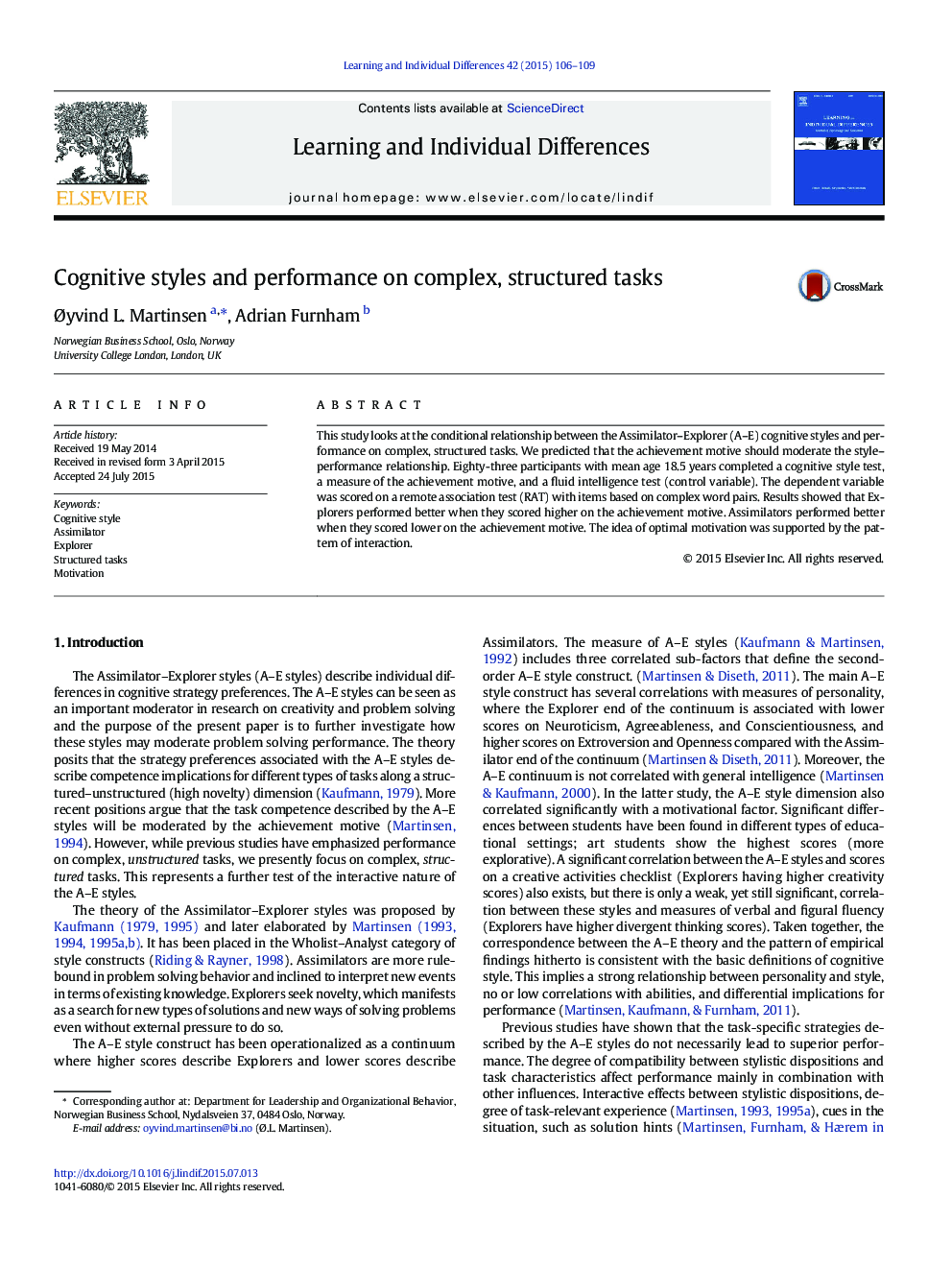| Article ID | Journal | Published Year | Pages | File Type |
|---|---|---|---|---|
| 364574 | Learning and Individual Differences | 2015 | 4 Pages |
This study looks at the conditional relationship between the Assimilator–Explorer (A–E) cognitive styles and performance on complex, structured tasks. We predicted that the achievement motive should moderate the style–performance relationship. Eighty-three participants with mean age 18.5 years completed a cognitive style test, a measure of the achievement motive, and a fluid intelligence test (control variable). The dependent variable was scored on a remote association test (RAT) with items based on complex word pairs. Results showed that Explorers performed better when they scored higher on the achievement motive. Assimilators performed better when they scored lower on the achievement motive. The idea of optimal motivation was supported by the pattern of interaction.
